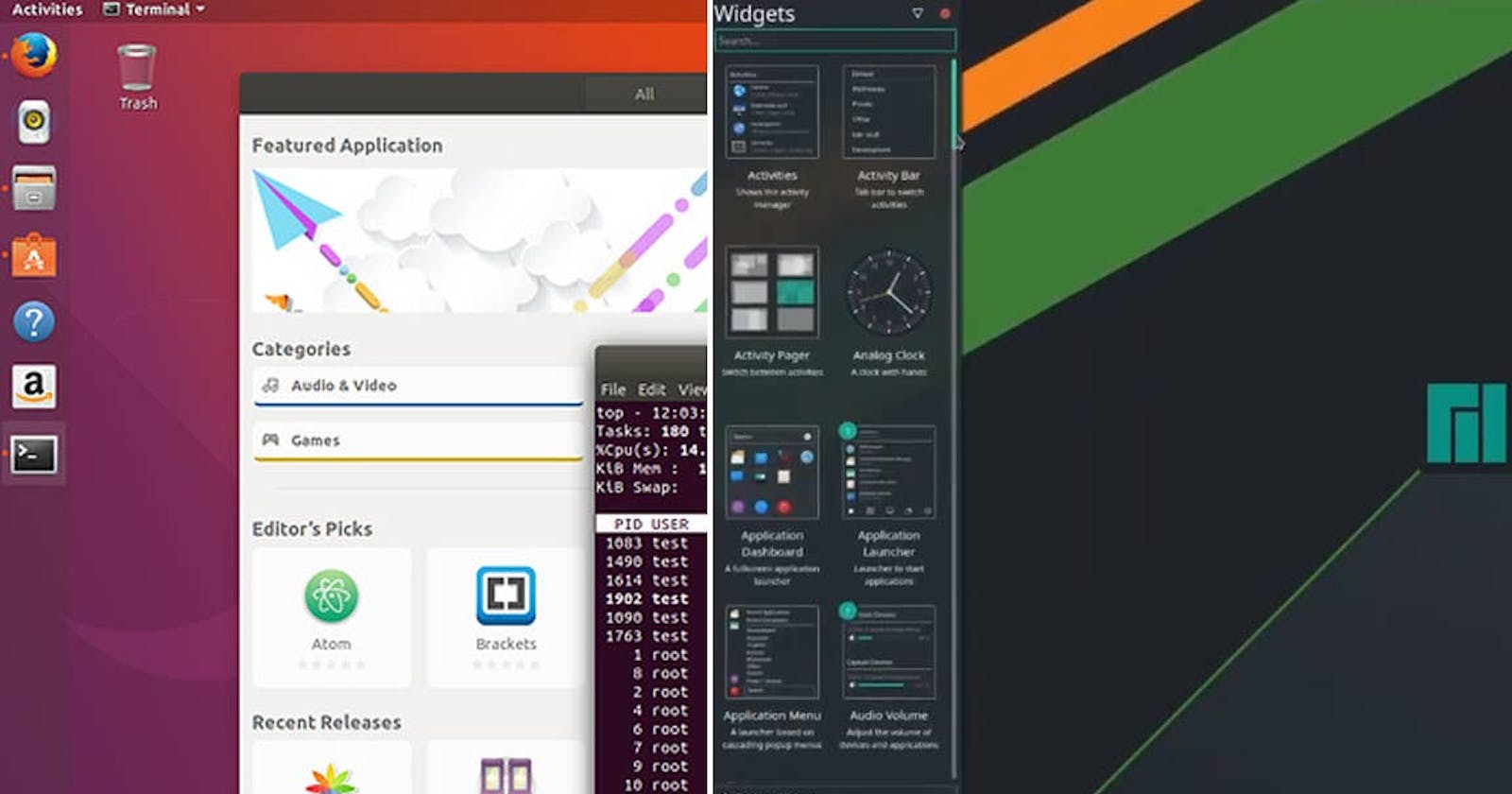Table of contents
1. Origin :
Ubuntu is based on Debian OS developed by British company Canonical).
Using an Operating System owned by a private company is pretty much same as using windows OS developed by Microsoft. There's no true freedom of software in this case. They can ship whatever they want in ISO, the decision is not in our hands.
Example : eff.org/deeplinks/2012/10/privacy-ubuntu-12..
Manjaro is based on Arch Linux mainly developed in Austria, France and Germany by community of developers.
Manjaro team is community of developers contributing to Manjaro in their spare time. Unlike a company, Manjaro isn't a business created to earn profit. That's why we can trust them to take decisions in favour of user's privacy & security. We do have a voice in Manjaro community.
2. Learning Experience :
Ubuntu users rely on Ubuntu Wiki to get their doubts and queries solved. On the other hand, Manjaro users looks up to Manjaro Forum & Arch Wiki mostly. Arch Wiki is arguably the best wiki across all distros.
Hence, you learn a lot more wandering in Arch Wiki than any other forum.
3. Customisation Options
Manjaro offers GNOME, KDE Plasma, XFCE Desktop Environment officially.
On the other hand, Ubuntu only ships with GNOME. Though, there are KDE & XFCE alternatives. They are not considered mainstream.
Manjaro, also comes with lot more customisation options built-in. Which can totally change the look of your PC as per your need.
You can have a look at amazing looking desktops here : reddit.com/r/unixporn
4. Updates
Ubuntu is point release OS. In simple words, you get 16.04, 18.04, 20.04 versions of Ubuntu. It provides LTS update once every 2 years, that means waiting for 2 years to get onto the latest build. Also the fact that updating to different version might not always work out of the box.
Manjaro just like Arch is a rolling release OS. In simple words, you always get the latest stable package on your system. There are no versions i.e. you don't have to do major updates which may breaks your system.
5. Stability
In terms of stability, both of the Operating Systems are considered stable. Though, lot of Ubuntu users have reported facing issues like Brightness Control not working, Battery Life too low, etc.. Though, Manjaro might also get some weird small bugs, I experienced solving bugs in Manjaro easier than Ubuntu.
6. Package Manager
Manjaro uses Pacman & Ubuntu uses Apt.
Manjaro has access to AUR which is considered as biggest repository collection.
7. My Experience
I was a distro hopper for a year. In that time-span, I tried out more than dozens of Linux based Operating Systems including Ubuntu, Kbuntu, Manjaro(all DEs), Kali Linux, Alpine, Debian, etc. I almost use Arch btw.
What I experienced was, Manjaro Gnome provided best combination of stability, bleeding edge tech, customisation, and ease of use without having to configure small things to me. It's completely beginner friendly, and I was able to do all of my academic stuff on it without any problem. Instead, I experienced my peers struggling to get Linux Ubuntu system ready for Computer Networks & few other courses.
8. Conclusion
Don't install Ubuntu blindly, just because some outdated academic course recommended it or your teacher is using it. There are thousands of Linux distributions out there crafted for specific needs. Try out few distributions like Manjaro, Debian, Ubuntu, Fedora, Mint, etc. Then decide on the distribution you want to stick with.
9. FAQ
Yes, I'm intrigued by Manjaro but how do I install it?
Installation Guide by It's FOSS
Are there other easy to install Arch Linux based Distributions?
Yes, there are lots of! Some of the famous ones are
Can you list out some of the famous distros?
- Manjaro : General Purpose
- Ubuntu : General Purpose
- Kali Linux : For Ethical Hackers & Penetration Testers
- Fedora : General Purpose
- Parrot OS : Security Professionals
- Arch Linux : For Superior Developers
- Debian : General Purpose
- Mint OS : General Purpose

